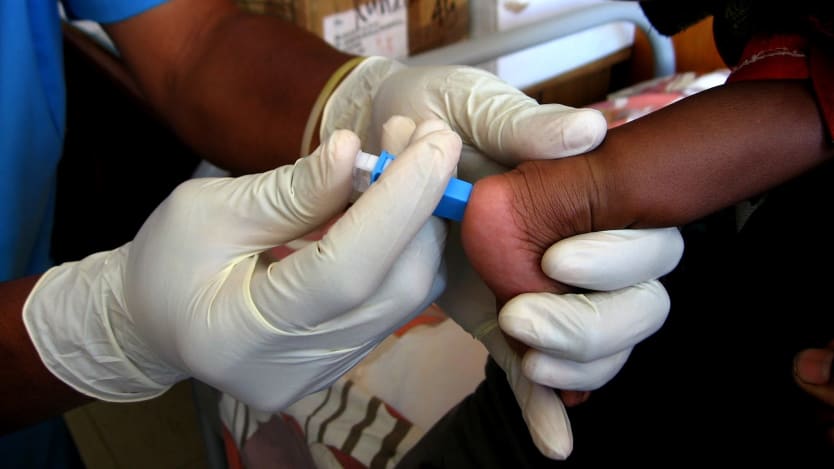
To advance global health around the world, aggressive targets have been set by the United Nations to mobilize action as set forth in the Sustainable Development Goals. The business community plays a critical role in these efforts by providing products and services to help meet health care needs.
But if the business community is going to help scale up efforts to deliver real progress, it's crucial that it look beyond its own operations and proactively partner with the public sector to tackle the world’s most difficult global health challenges through the formation of public-private partnerships.
Public-private partnerships are important for a couple of key reasons. First, achieving a global public health goal, such as UNAIDS' goal of ending the HIV/AIDS epidemic by 2030, is an enormous undertaking — one that no single sector can accomplish on its own. Second, both the public and private sectors bring unique and complementary assets that can be marshaled collectively to realize the goal.
The evolution of partnership
Since 2014, Abbott has partnered with OAFLA to provide life-saving rapid diagnostic technologies to 17 countries in Africa. Rapid tests have been used in pilot programs for testing pregnant women for HIV and syphilis during antenatal clinic visits. Successful pilots have paved the way for expanded testing and treatment in those countries.
Financial grants provided to eight OAFLA member states have helped increase awareness of HIV/AIDS in areas with high disease burden. The first ladies convened capacity-building workshops for health workers while sponsoring health screenings for the general population and counseling services for at-risk individuals.
In 2017, we also signed on as a private sector partner of Free To Shine and have funded the development of advocacy tools for the first ladies and partners to use during the awareness-building phase of the program.
As Free To Shine enters the implementation phase, Abbott will continue to support and share technical expertise for capacity-building regional workshops and country symposia for triple testing of HIV/AIDS, syphilis, and hepatitis in pregnant women, and early infant detection of HIV.
Bringing organizations together across different sectors can be challenging. However, at Abbott we're seeing an openness to applying the power of the private sector to address key needs. For example, the emerging public-private partnerships between the Organisation of African First Ladies against HIV/AIDS, the African Union, multiple U.N. agencies, NGOs, and Abbott.
Known as Free To Shine, this partnership’s goal is to bring urgently needed health care services to pregnant women and newborns at risk of contracting HIV/AIDS and thus break the cycle of mother-to-child transmission of HIV and comorbidities. Of the 1.8 million children living with HIV globally, 1.4 million are in sub-Saharan Africa, and only just over half are currently receiving treatment. Without treatment, 35 percent of HIV-infected children will die before their first birthday, and half will die before 2 years of age.
In the early stages of our work with OAFLA and partners, we applied the following three principles of partnership that we believe are essential to ensuring sustainability and could be applied to others looking to embark on partnerships for change:
Listen and collaborate
Private sector companies need to listen carefully to understand a partnership’s true vision and goals. When partners are invested and committed at each stage of the initiative — from strategic planning to the design of the operational framework — collaboration becomes more seamless and facilitates long-term success.
For example, since 2015, Abbott has collaborated with PSI on the design and operation of a fellowship program where both Abbott and PSI employees work together to solve complex problems. In Myanmar and Honduras, the fellowship teams applied their expertise to market and package affordable diabetes and hypertension management services for low-income clients.
“By bringing together highly engaged organizations across both the public and private sectors, public-private partnerships can help improve the lives of those in greatest need around the world.”
— Damian Halloran, vice president of infectious disease in emerging markets, AbbottAlign resources with needs
As a result of listening and collaboration, a private sector company is better able to determine the unique set of assets it can contribute to support the program. Assets can include deep technical expertise, human resources, financial support, and product donation.
For example, in 2014-2015 through a partnership with the nonprofit global advocacy organization, Malaria No More, Abbott donated 2 million rapid diagnostic tests for use in Zambia, Kenya, and Nigeria. This led to faster diagnoses and treatments of malaria cases in these countries. Abbott collaborations with Malaria No More continue today, focusing on some of the countries hardest hit by malaria, one of the world’s deadliest, yet preventable diseases.
Systems matter
Donated products and funding won’t move the needle if systems are not in place to ensure effective fieldwork and long-term sustainability. Monitoring, evaluation, and data management systems are imperative for tracking the likes of disease epidemiology and the progress of interventions.
Capacity-building programs are required so that health workers — at all levels and in all geographies — are equipped to deliver high-quality services, even to patients living in the most remote settings. When taken together, partners can better manage not only infection outbreaks, but also establish effective strategies for epidemic control.
Clearly, there is much work to be done to tackle global health challenges such as HIV/AIDS, malaria, and a host of other communicable and noncommunicable diseases. By bringing together highly engaged organizations across both the public and private sectors, public-private partnerships can help improve the lives of those in greatest need around the world.
To learn more about Free To Shine, click here.








